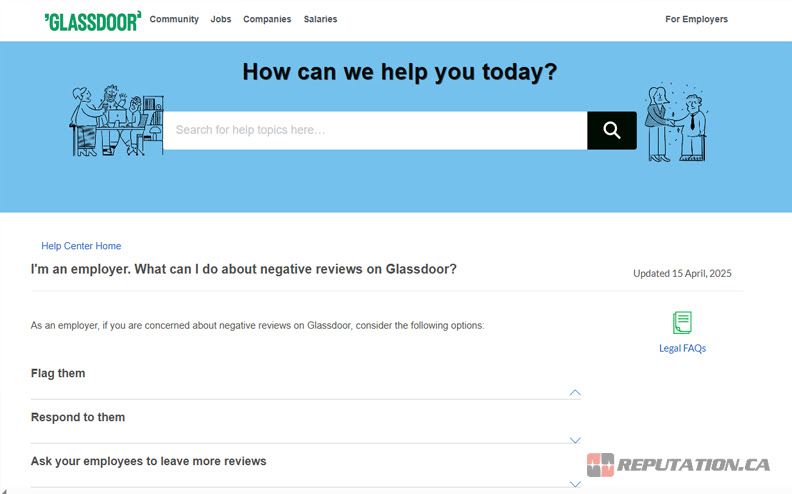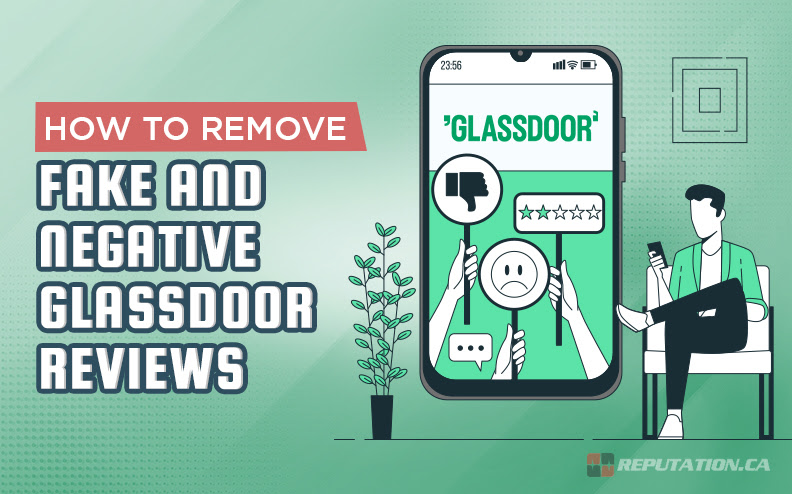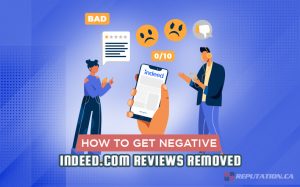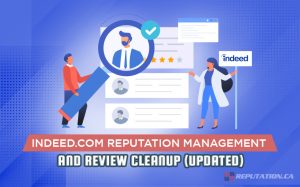Fake Glassdoor reviews can wreck your reputation in just a few hours. One SaaS startup even saw its job applications drop by 40% after a single false review.
You can lose your candidates, see your trust slip away, and watch your team morale drop when a bad review pops up online. Why would you ever let one post push your top talent straight to your competitors? You can use this guide to flag fake reviews, follow the policy, and gather solid proof. You’ll also get some tips on writing fair replies and giving your company a stronger public image.
You need to act fast in today’s hiring market to protect your image, draw the right candidates, and boost team spirit. Every minute counts. You should compare each review against Glassdoor’s rules.
Not all feedback is a violation – flag only the posts you can report for removal. You should especially look for personal insults, defamation, or leaked internal info since those are clear grounds for reporting.
How Removal Eligibility Works
You can save time and frustration when you learn about Glassdoor’s rules for removing reviews. We’ve all been in those shoes. You can’t take down every negative or unfair comment you disagree with. Important feedback stays up because Glassdoor prefers to show honest and balanced accounts of workplace life.
You can remove reviews that have profanity. Those with personal attacks break the community guidelines and should be flagged for removal. The same goes for confidential information, which also violates those rules. You might even find accidental leaks of trade secrets or client data. You should flag those immediately. You also have a solid case when someone who never worked at your company posts a review. Those cases get cleared faster.
You’ll run into comments saying that your management style is terrible. You might see notes about pay rates falling below the market. Even if they sting, those opinions stay. The truth hurts a little. You won’t lose the chance to find these areas for improvement. Just because you can’t remove every negative line doesn’t mean you lose a chance for feedback. Glassdoor actively defends real workplace experiences. It shows the bad.

Don’t flag every harsh comment you see. Why mark every It only hurts your opportunities in the long run. Glassdoor spots patterns when businesses try to scrub away all criticism. Breathe through the reaction. Save your flags for reviews that deserve removal since a few flags will go farther than a flood of rejections.
Take this example – a review stating “The CEO never listens to employee feedback” is an opinion that stays. But accusing the CEO of stealing ideas and calling staff offensive names crosses into removable territory – and makes your reports more credible. Flag reviews that break the rules – real people at Glassdoor read each case closely, and they’ll quickly ignore irrelevant flags. They find these when you’re gaming the system and will reject those flags immediately. Don’t rush to report a review without checking the policy on Glassdoor’s website, and take a bit to read the laws that qualify content for removal so you’ll know what to flag.
Remember that some negative feedback can guide real change in your workplace culture. The comments that hurt the most can shed light on where you can improve, and even small improvements help. Why would you wait when you can turn these reviews into a growth opportunity?
Step By Step Removal Process
You should act fast when you find a misleading review on Glassdoor. First, log into your Glassdoor employer account and find the review in question. You’ll see a small flag icon next to each entry – that’s your starting point.
You can click the flag and then pick Report to get started. A dropdown menu shows different violation categories. Pick the one that fits your case. Does the review show private company data? Does it use offensive language? Or does it make false claims about your workplace practices?
You’ll get even better results when you back your report with good, well-documented evidence. On that note – a restaurant chain removed a review that falsely claimed health code violations by sharing inspection records and documentation. They showed how the claim didn’t match the facts.
Have the facts – not your feelings – when you explain your case. Make a good case for why the review violates the Glassdoor rules. You can include dates, policy facts, and any evidence you have on hand. Your report can clear up the problems quickly, or it might take some weeks. If you haven’t heard back in about 7 to 10 days, send a quick follow-up email.
Stay patient and at it. Use the Glassdoor Employer Center when you want a wider, consolidated view of all your reports – this dashboard shows every review and lets you manage each report in one place. HR managers favor it because it keeps Glassdoor communication organized and transparent.

Glassdoor won’t pull down a review just because it’s negative or important. It only removes content that breaks the community guidelines and terms of service. Read those guidelines before you hit the Report button to make sure that you’re aware of them. Evidence is your best bet here. Now is a good time to get together some evidence. What documentation can you pull together? Look for timestamps, official messages, or other records that prove the situation didn’t happen the way the review claims.
Should You Respond to Them?
You can change how people see your company by replying to negative Glassdoor reviews. People feel better when they see your team taking the time to respond.
You show everyone you value honest feedback when you respond publicly. You have to find criticism head-on instead of hiding it. That openness builds trust with your latest team and future hires. Job seekers check Glassdoor before applying for a job, so public replies show if management listens or ignores problems.
Those quick responses help you attract top talent instead of losing it to competitors. Try thanking the reviewer for their feedback. That small courtesy sets the right tone. Next, show you’re aware of their point of view by saying, “We’re sorry you had that experience with our training program.” That reply honors their feelings without implying you agree with everything.

Then, address the points they raised – if they mention a poor work-life balance, explain steps you’re taking to improve that area. It’s your chance to give context without sounding defensive. Share any changes you’re making based on employee feedback. That proves you listen and take action. Always end with an invitation to continue the conversation in private and include contact details for HR or a leader. Some problems need more detail than a public forum lets.
Stay away from generic, copy-and-paste replies. Every response should address the problems in that review. Ask a colleague to review your draft before you hit the post button. A fresh set of eyes can catch tone problems or missing facts. Watch your tone since a defensive or angry reply can add to a negative image. The criticism may sting. But staying professional keeps things calm. Never let frustration show when you can keep the conversation constructive.
Keep all personal data private, and never share employee facts or confidential info in your public response.
When Should You Think About Legal Action
You’ll only try legal action when a fake Glassdoor review crosses into defamation – the courts need proof that the statement is false and has hurt your company. The proof requirement is higher than most business owners expect.
Anonymous profiles can create a big hurdle – you’ll have to file a John Doe lawsuit just to find out who wrote the review. Legal battles are exhausting. That process can take a few months and cost thousands of dollars. Are you ready for that time and cost?
When you need to choose where to file, it can add even more difficulty – should you go where the reviewer lives, where your business operates, or where Glassdoor’s servers sit? The costs add up fast, and each choice triggers different laws.

Legal action can backfire because it draws attention to the review you’re trying to remove – this Streisand effect turns one bad review into front-page news. I’ve seen businesses sue and end up making the review even more visible. You should talk to a labor attorney before you take any legal steps.
You can ask for a cost estimate and a timeline. They can share some examples of similar cases and what you might expect. Preserve your evidence – take some screenshots of the offending reviews and record any impact on your business. Revenue drops, canceled contracts, or hiring challenges will all add strength to your case. Glassdoor will finally comply with the court orders once a judge rules that the content is defamatory. They’ll remove the review only after you complete the full legal process.
You should ask yourself if it’s worth it – the legal fights drain time and money from your core business. Your time deserves better.
It makes more sense to have more positive reviews instead.
Why Reputation Management Services Help
You can save time and effort by working with a reputation management company. Try focusing on your core work instead of grappling with tough Glassdoor reviews. These teams know which content goes against Glassdoor’s terms of service and how to make appeals that get results.
Most businesses do an audit of their profile. That audit shows which reviews are worth tackling. You don’t even need to fight every negative comment. The pros can tell fair feedback from fake reviews. When you hire them, the experts will give you a buffer between your company and Glassdoor. They manage the back-and-forth communication so you can stay away from the emotional slog. Business owners find this buffer helps them stay calm around unfair reviews.
You should also check what each service covers before you sign on. Some firms keep an eye on reviews over time, while others only do a one-time cleanup. Prices vary, so you should ask for relevant case studies from your industry, too. That research takes patience.

The choice to manage reviews yourself or to bring in help comes down to your time and stress levels. You might think you’re able to manage it all yourself. But many business owners get swamped. Why wait until you hit burnout? One manufacturing client spent months fighting reviews in-house. Their HR manager devoted hours each week to writing the replies. Once they hired specialists, that time went back to improving their workplace environment.
You should watch out for any service that guarantees review takedowns first. No legitimate company can promise that Glassdoor will delete every comment. Glassdoor always makes the final call. Good agencies will be honest about what they can and can’t do.
The top firms teach you steps that last. They set up easy, automated ways to get real positive feedback from happy employees – this builds a more balanced profile over time instead of just fighting fires.
Monitor and Manage Your Reputation
Patience and a steady hand help you manage those one-off posts that don’t match reality. You can see how clear guidelines and careful flagging are pushing the fake comments aside – and the honest feedback stays front and center. When you respond, it teaches you that pacing your feedback and escalating only when it matters stops you from chasing every mention. Man, this takes real dedication. Remember that the real changes inside your organization will do more for your reputation than any of the removal processes.
If you just want a quick fix, it can still leave the deeper lessons behind. When you rush for a generic page, it makes you miss how communication and culture matter. When you build stronger communication and a healthier culture, it crafts a more authentic story that employees and prospects will see.
These real improvements also help lower the chance of unfair criticism, and they give your team some extra reasons to share positive plans on their own. A balanced strategy – combining policy knowledge with some open-minded feedback – feels more sustainable and humane. And here is your checklist. You should know the rules.

The stakes do feel real here. You should flag comments. You should respond with honesty. You should push harder only when it matters. Are you now ready to take control of your online reputation? You can work with Canada’s leading experts in reviews, social media, public relations, and crisis response.
If you ever have to fight cancel culture or you’re building a stronger business website, we’re here to help you. You can contact us at Reputation.ca for some input built around your preferences.
Even before you close this tab, you should carve out a few minutes this week to audit your Glassdoor presence – if every employee posted, what story would your profile tell?







